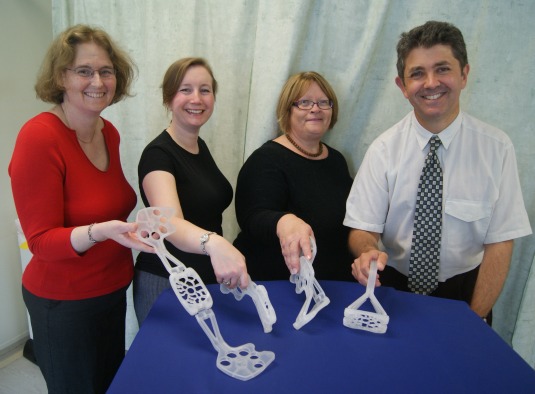Professor of International Maternal Health, Andrew Weeks from the Institute of Translational Medicine has been awarded £850,000 to further develop an award-winning device that could save the lives of women all over the world.
Postpartum Haemorrhage (PPH) is often defined as the loss of more than 500ml or 1,000ml of blood within the first 24 hours following childbirth. PHH is a common maternity emergency affecting 40,000 British women each year, potentially leading to long-lasting complications.
Globally, it remains a major cause of death and is responsible for around 25% of the 289,000 maternal deaths annually. Although common, its management has changed little over the last 40 years.
Professor Weeks, in collaboration with the University’s Department of Medical Physics and Clinical Engineering Royal Liverpool University Hospital, Royal Liverpool and Broadgreen Universities Hospital NHS Trust, Liverpool Business Gateway units, Protolabs, Plastribution, and Pelican Feminine Health Care, has developed a device, the PPH Butterfly, which not only stops the bleeding immediately, but also helps to diagnose its source.
Strong partnership working
The National Institute of Health Research (NIHR) Invention for Innovation (i4i) fund is supporting the work, taking it step forward to test the safety of the device in the management of PPH in women experiencing the condition.
Of the award Professor Weeks, who is also a consultant obstetrician at the Liverpool Women’s Hospital, said: “The award is a tribute to strong partnership working with the University, the NHS and Industry partners. Whilst as a clinician I could see a clinical need, it took many collaborators to produce the final product and my thanks go to them for their contributions.
“This funding is fantastic news for the project, and will really help us to undertake further design work, develop a training package for those who will use it, and to test the device on women experiencing PPH.”
Professor Weeks and his team were also recently awarded the North West Coast Academic Health Science Network Award for Innovation for the device.
A video about the device can be seen here.
